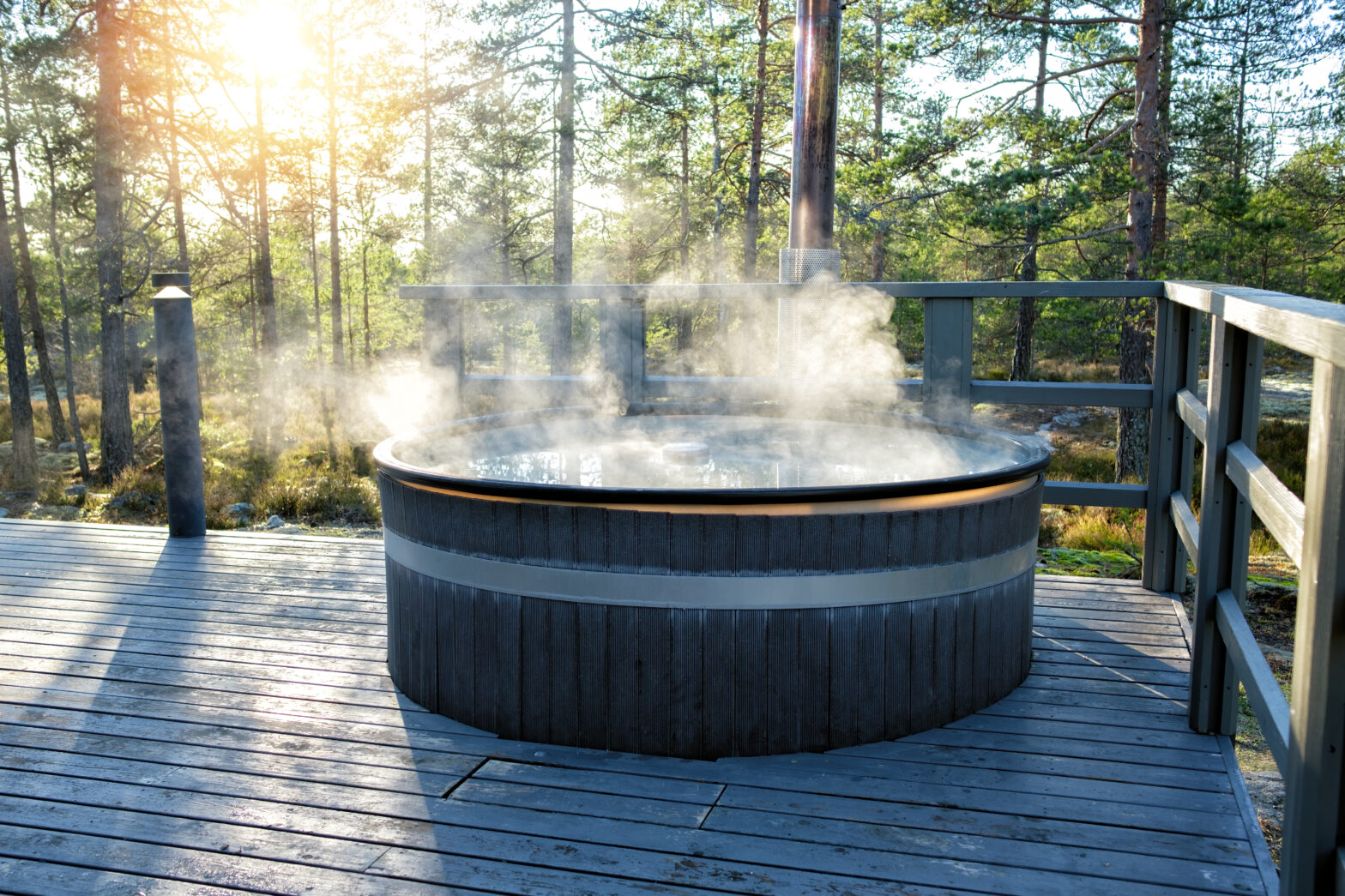Introduction:
When it comes to maximizing muscle growth and enhancing performance, athletes are always on the lookout for effective recovery techniques. While cold-water immersion has been a topic of discussion in our previous blog post (see here), we now focus our attention to an alternative recovery approach: hot-water immersion.
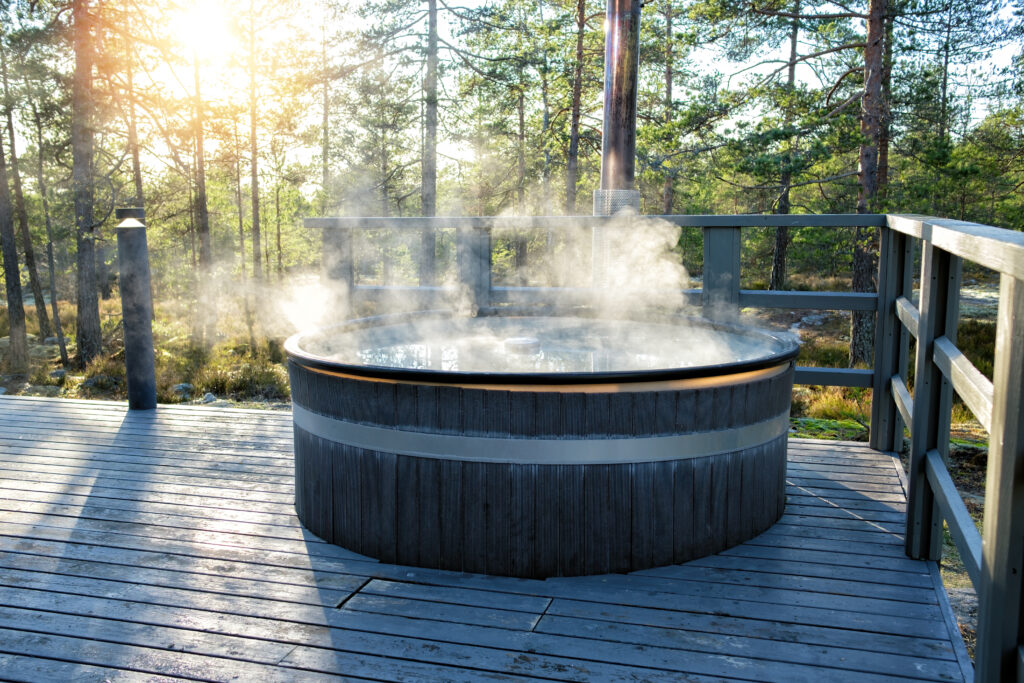
As we have found that cold-water immersion hinders muscle protein synthesis by reducing muscle temperature and blood flow, it raises the question: Could increasing muscle temperature and blood flow through hot-water immersion actually promote muscle protein synthesis? Furthermore, could this lead to an increase in long-term gains in muscle mass and strength?
In this blog post, we will delve into the research surrounding hot-water immersion after resistance exercise and its impact on muscle protein synthesis and long-term gains in muscle mass and strength.
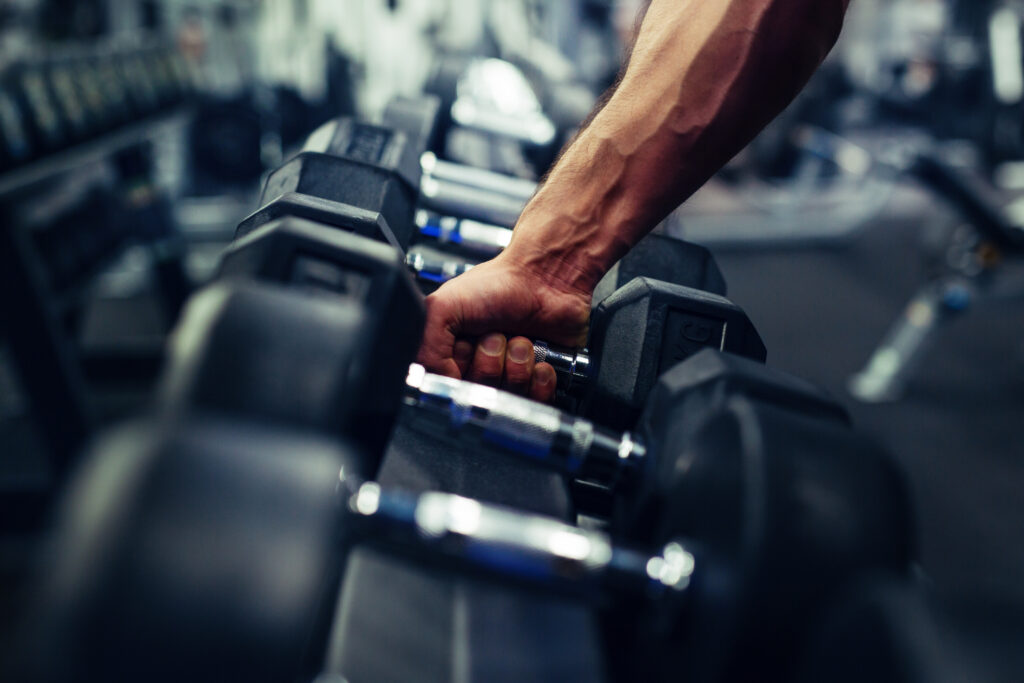
Muscle Protein Synthesis:
To investigate the effects of hot-water immersion, we performed a study were 12 healthy young male adults performed a resistance exercise session [1]. After exercise, one leg was immersed in hot water (46°C) for 20 minutes, while the other leg was immersed in thermoneutral water (30°C) for 20 minutes. Following 20-min water immersion, a protein shake was given, which allowed us to track the amino acids all the way from ingestion towards incorporation into the muscles over the next 5 hours. In addition, we assessed if hot-water immersion would enhance muscle protein synthesis over this 5 hour recovery period.
Somewhat to our surprise, the study did not reveal any difference in amino acid incorporation or muscle protein synthesis between the leg immersed in hot water and the leg recovered at a normal temperature. Therefore, these acute findings suggest that hot-water immersion immediately after exercise does not offer additional benefits for muscle protein synthesis. Does this also mean that there is no added benefit on the long-term gains in muscle mass and strength?
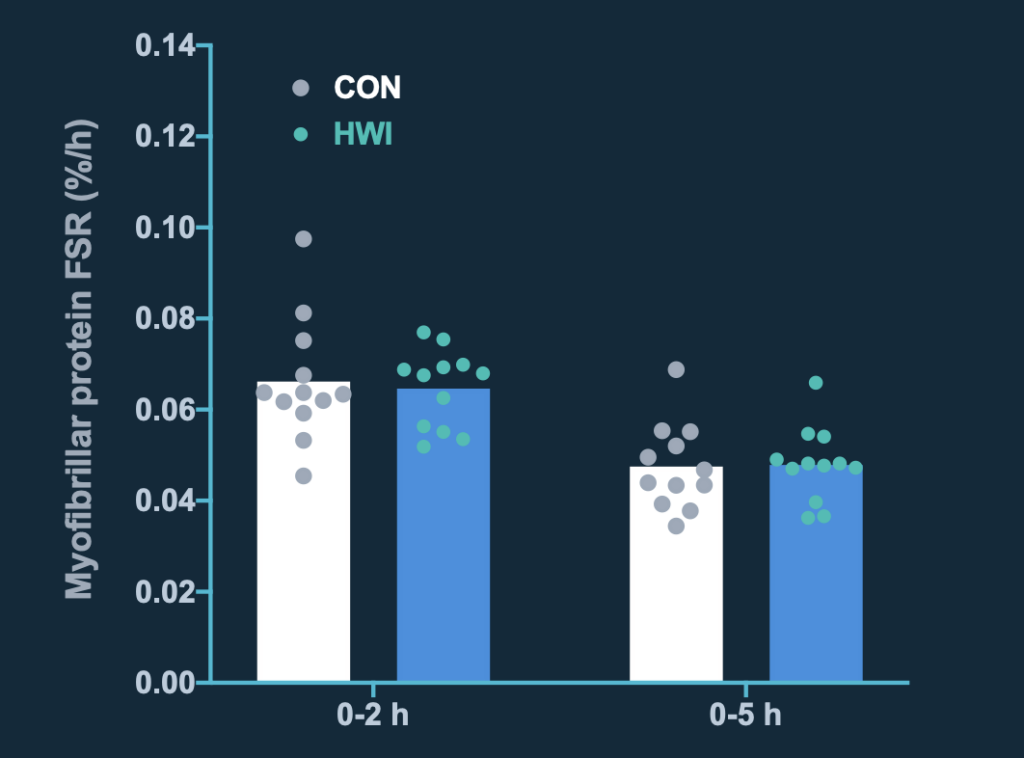
Figure adapted from Fuchs et al. (2020). Con = the control leg; HWI = the hot water immersion leg. No differences are found between CON and HWI on muscle protein synthesis.
Further Research:
To explore the effects of hot-water immersion over a more prolonged period, additional studies have been performed. One study observed highly trained rugby athletes during an in-season competition phase, employing hot-water immersion (15 minutes at 39°C) for 4 weeks following resistance exercise. The results did not demonstrate any significant improvement in lean body mass [2]. In addition, another study explored the effects of 10 weeks of resistance exercise training combined with post-exercise hot-water immersion (10 minutes at 45°C) twice a week. Similarly, this study did not find any additional gains in muscle mass and strength [3].
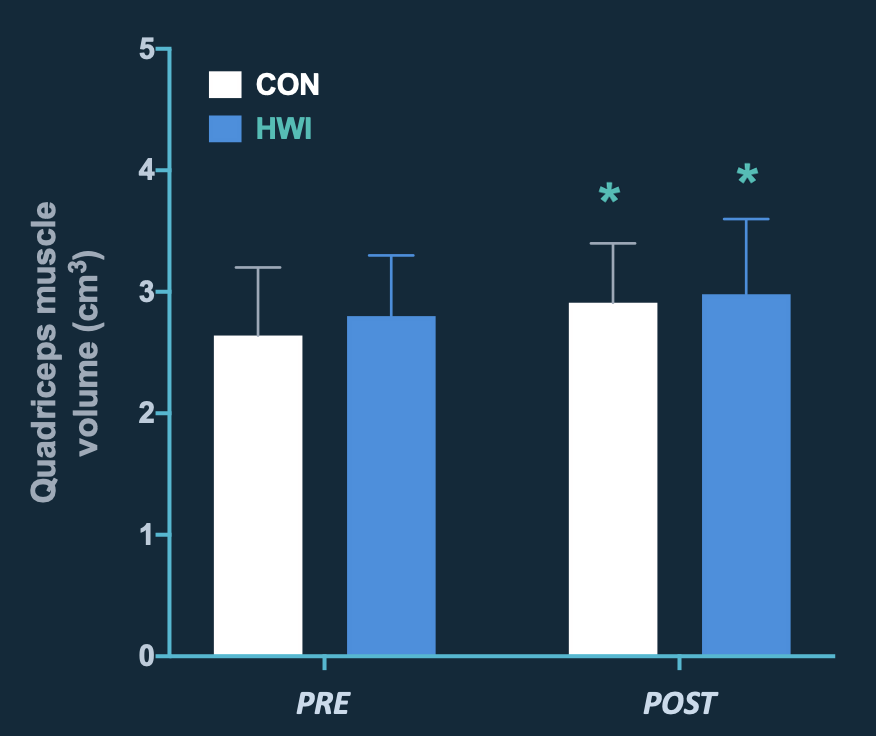
Figure adapted from McGorm (2019). Con = the control group; HWI = the hot water immersion group. No differences are found on muscle mass gains during 10 weeks of resistance exercise training between the CON and HWI groups.
Conclusion:
Based on the limited available evidence, it does not appear that hot-water immersion as a recovery strategy following resistance exercise contributes significantly to muscle mass and strength gains. However, it’s worth noting that engaging in hot-water immersion after exercise will not hinder your progress either. Therefore, if you find enjoyment and relaxation in a hot tub, you can continue to indulge without concerns about negatively impacting your gains. Whether other heating strategies such as sauna may have beneficial effects will be covered in other blog posts.
References:
- Fuchs, C.J., et al. Hot-water immersion does not increase postprandial muscle protein synthesis rates during recovery from resistance-type exercise in healthy, young males. J Appl Physiol (1985), 2020. 128(4): p. 1012-1022.
- Horgan, B.G., et al. No effect of repeated post-resistance exercise cold or hot water immersion on in-season body composition and performance responses in academy rugby players: a randomised controlled cross-over design. Eur J Appl Physiol, 2022.
- McGorm, H. The effects of hot water immersion on recovery, performance, and adaptation to resistance exercise. PhD Thesis, 2019: https://espace.library.uq.edu.au/view/UQ:0a232e8.
🧬 The scientific guide to building muscle mass by Dr. Cas Fuchs (Ph.D.) is currently under development. Sign up to be the first to hear when it launches:
